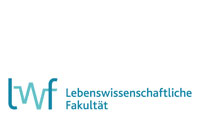Project DECIDE
Title: Decision-making places in Alzheimer’s dementia – supporting advance decision-making by improving person-environment fit
Cooperating partners:
-
Prof. Dr. med. M. Grond, Neurology Clinic, Siegen District Hospital
-
Dr. I. Schmidtmann, Institute for Medical Biostatistics, Epidemiology and Informatics (IMBEI) at the University Medical Center of Johannes Gutenberg University Mainz
-
Prof. Dr. A. Reif & Dr. T. Karakaya, Department of Psychiatry, Psychosomatic Medicine and Psychotherapy, University Hospital, Goethe-University, Frankfurt
-
Prof. Dr. F. Oswald, Frankfurt Forum for Interdisciplinary Ageing Research (FFIA), Goethe University Frankfurt
-
Dr. Hornke, Director, Dignity Center, Frankfurt
Sponsor: This research is being funded by the German Federal Ministry of Education and Research BMBF (Bundesministerium für Bildung und Forschung, Funding number: 01GY2022). The funder played no role in the design of this study and will not play any role in its execution, the analyses, interpretation of the data, or the decision to submit results. / DLR Projektträger
Project term: 01.04.2021 – 01.04.2024
Keywords: supported decision-making, advance care planning, dementia, empowerment, person-environment fit
Project description: PwAD have (like every other person) the right to decide whether they want to receive specific medical treatment and to provide their free, prior and informed consent to do so. As dementia progresses, PwAD can lose their capacity to provide informed consent to complex medical treatment. When capacity to consent is lost, the autonomy of the affected person can only be guaranteed when an interpretable and valid advance directive exists. Advance directives are still not sufficiently widespread in Germany, and their validity is often questionable. Retrospectively, doubt is often cast on PwAD’s capacity to consent at the time of writing the advance directive and therefore also on the validity of their directives because capacity to consent is the precondition for completing a valid advance directive. Once the dementia diagnosis has been made, it is often assumed to be too late to write an advance directive because even in mild dementia, capacity to consent to complex decisions is already questionable.
In a memory clinic setting, AD is generally diagnosed when the disease is mild. Mild AD is a state in which capacity to consent is still achievable with adequate support. Hence, we assume that a memory clinic is a suitable place to initiate the supported preparation of an advance directive, but that it is not the right place to complete one.
One approach used to support the completion of advance directives is ‘Respecting Choices’® - an internationally recognized, evidence-based model of ACP, but this has as yet not been evaluated for the target group of PwAD. To support the capacity of PwAD to consent to treatment choices for an advance directive, we build on concepts and evidence from environmental gerontology, and suggest the selection of the ‘decision-making place: home’ (intervention) as a supportive and empowering measure. We assume that the home, a place where the perceived sense of belonging is strong, has a complexity-reducing effect that lessens the subjective task complexity of the treatment choice and raises the rated capacity to consent to treatment choices for an advance directive (primary outcome).
In our first main study (process intervention study), we will study the effect of the process intervention (offer to participate in ACP) on the proportion of (valid) advance directives of Pw suspected AD treated in memory clinics by using a time series approach with a baseline-design (baseline phase: no intervention, intervention phase: process intervention).
In our second main study (spatial intervention study), based on two medical procedures, we will study the effect of the spatial intervention (place) on capacity to consent to treatment choices for an advance directive using a randomized incomplete block design with a factorial structure. Capacity to consent will be measured using the standardized assessment instrument DCAT-PAD (Elbogen et al., 2007; Srebnik et al., 2004). Each participant will take part in a full ACP interview and complete an advance directive. The interview will be subdivided into two sessions that deal, inter alia, with one of the two studied medical treatment decisions (topics may be tube feeding and ventilator use). One session will take place at home, and the other in the memory clinic. All combinations of place (home, clinic) and topic will be studied. The subjects of the two medical treatment decisions to be studied will be chosen by a Patient Advisory Board at the university, consisting of PwAD and their carers.
Based on the results we will derive recommendations for the implementation of ACP and ‘empowering decision-making places’ that allow PwAD to complete, as far as possible, autonomous and legally valid advance directives. This project will contribute towards increasing the autonomy and inclusion of PwAD, and the widespread existence of valid advance directives in PwAD.

